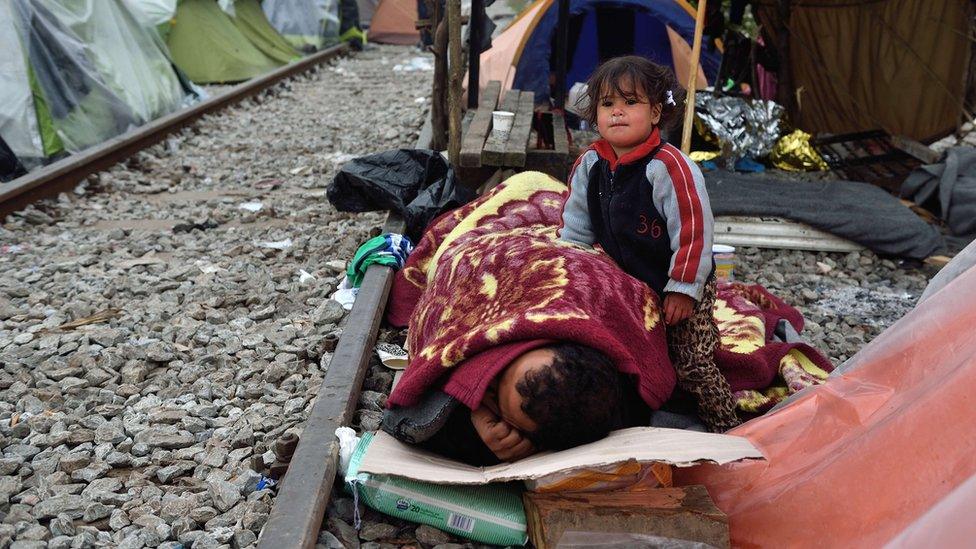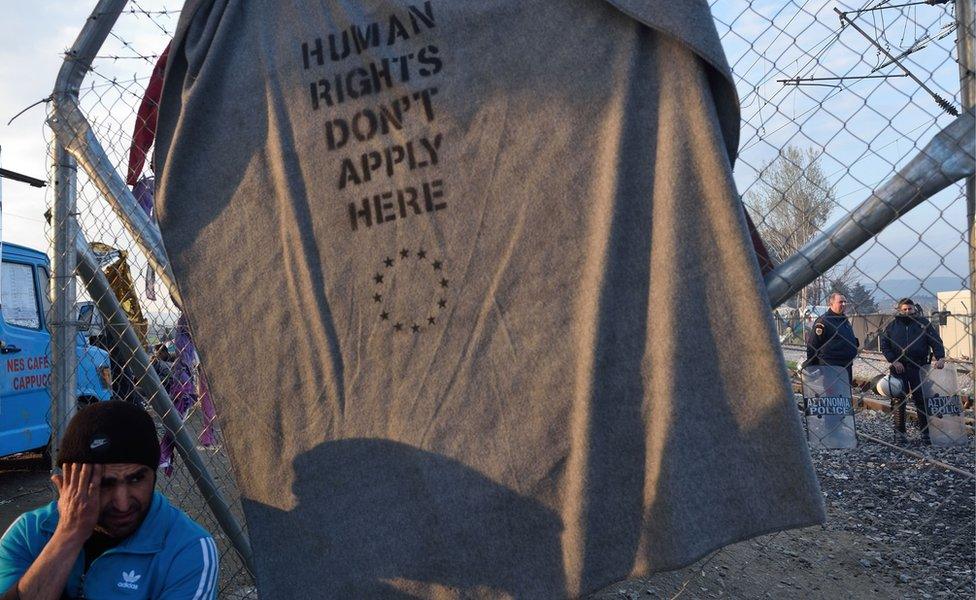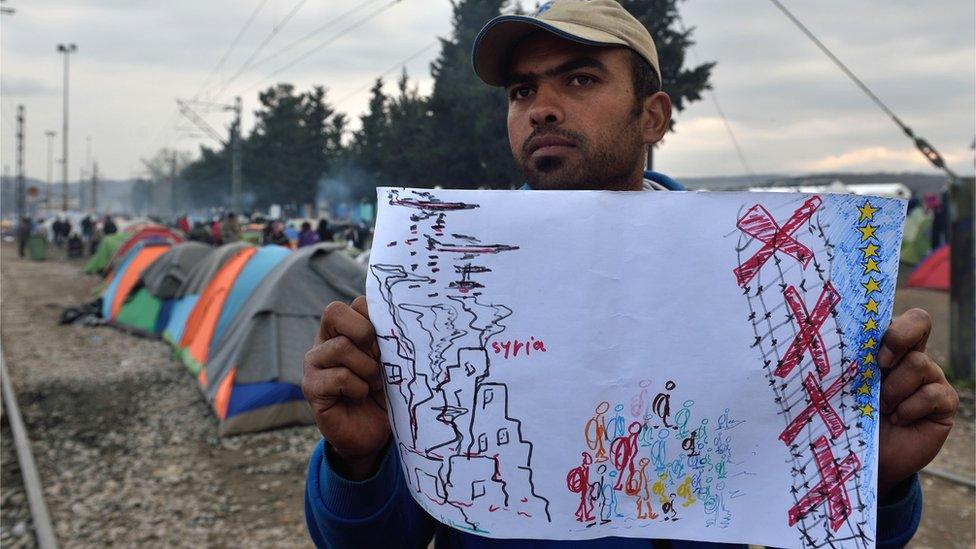Migrant crisis: There's a deal, but implementing it won't be easy
- Published

Deal will see people with rejected asylum claims sent back from Greece to Turkey
The migrant crisis has put the EU - with its talk of continental unity and humanitarian ideals - to shame. Refugee misery. Asylum seekers' agony. Chaos, friction and division.
To all of this the EU says: No more! Not on its turf, at least.
The plan now is to ship the problem (back) to Turkey. Most migrant boats heading for Europe leave from its beaches.
Under the deal thrashed out, those arriving in Greece after midnight on Saturday will be sent back to Turkey if their asylum claim is rejected.
In return, EU countries - not including Britain - will take possibly tens of thousands of Syrian refugees directly from Turkey, which is struggling to cope with almost three million Syrians.
Sounds straightforward but actually it is all a grand bargain - ambitious for Turkey, crushing for the EU. And a bit of a bluff.
The EU basically wants to put off any more migrants climbing in to dinghies to get here. And it is paying a huge price in terms of money and political credibility enlisting Turkey's help to achieve that.
The migrant crisis has divided Europe, frightened its people and emboldened populist politicians who pose a challenge to the leaders meeting here in Brussels.
In desperation they have agreed to Turkey's steep financial and political demands - with the usual ifs and buts typical of EU agreements - but the deal is legally, practically and morally so contentious that its wording in public is deliberately opaque in many areas.
Unanswered questions
For starters, to be able to send tens of thousands of migrants out of Greece and back to Turkey, Athens has to change its asylum laws to recognise Turkey as a so-called safe country.
To really be one, Turkey needs to change its laws to fully respect the Geneva Human Rights Convention. Something it refuses point blank to do.

The plan has drawn widespread criticism from human rights groups
Currently, Turkey only recognises European refugees. Syrians have "special status" in the country because of their brutal civil war, but Iraqi and Afghan asylum seekers - who make up 40% of migrant boat arrivals in the EU - are not recognised in Turkey.
What happens to them under this new deal?
What happens too to the women, children and the elderly as well as the young men, all of whom risked their lives to get to Greece? Are they to be packed off on planes or boats back to Turkey? They are unlikely to go quietly.
Can Europe, should Europe stomach the scenes?
Bear in mind the EU won the Nobel Peace Prize a few years back for promoting peace, reconciliation and human rights in Europe.
Should it be making deals with a country like Turkey whose president is becoming increasingly autocratic and arguably undemocratic?
And whether or not the Turkey deal works, it is no silver bullet, as Donald Tusk, the EU summit host and European Council president, put it on Friday evening.
Not so easy
Greece is struggling to cope with tens of thousands of stranded migrants who arrived before the Turkey deal was signed.
And there is extreme reluctance, to put it mildly, amongst many other EU countries to share out the migrant burden.

The deal is an attempt to discourage migrants and refugees from coming to Europe
Turkey is also not the only route into Europe. Libya is becoming a popular springboard again. There is also Bulgaria and the Albanian mountains.
Desperate people will try desperate things - and in greater numbers now that spring is arriving and seas are calmer.
On Friday, Turkey was complicated enough. Leaders at the summit did not go into detail about an EU Plan B on the migrant crisis.
They need one.